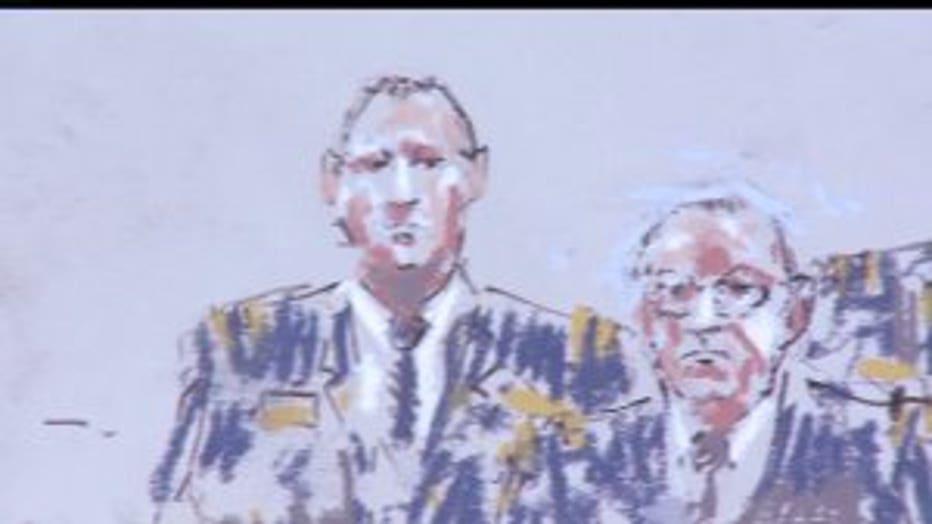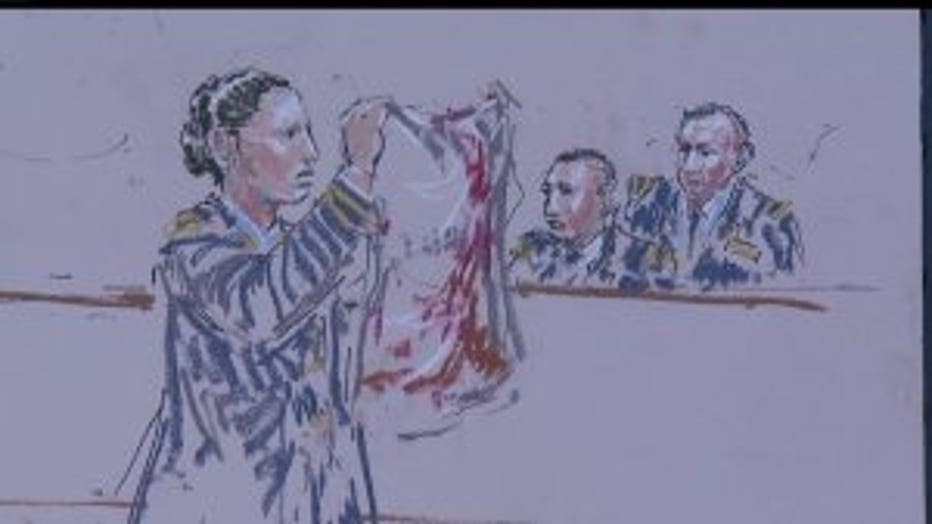Afghan villagers give emotional testimony against Sgt. Bales
JOINT BASE LEWIS-MCCHORD -- Haiji Naim, an elder in one of the small afghan villages where Army Staff Sgt. Robert Bales massacred 16 Afghan civilians last year, testified Tuesday that he and several members of his family were shot in the middle of the night by the lone rampaging American soldier.

Naim was brought to Joint Base Lewis-McChord to testify at the sentencing phase of Bales' trial. The 39-year-old father of two has pleaded guilty to 16 murder charges.
Naim angrily described how he was shot in the face by Bales.
"This bastard stood right in front of me," said Naim. "I wanted to ask him, what did i do? And he shot me.”
Prior to hearing wrenching testimony from Afghan witnesses, jurors were told by Army prosecutors what led Bales to murder 16 afghan civilians in the middle of the night.
They painted a picture of a soldier frustrated with an overweight wife, upset over being passed over for promotion and struggling in a desperate financial situation. Prosecutors said the night of the attacks, Bales was on steroids and drinking heavily, telling a superior, he had, “bad kids, an ugly wife and was not anxious to make it back home to see them.”
Prosecutor Lt. Col. Jay Morse told jurors Bales "went into the village with the intention of murdering any Afghan he saw regardless of age or gender."
When it was done, 16 were dead, including several children. A 12-year-old Afghan boy, Sadiqullah, was also shot that night. He also traveled to JBLM to testify, telling jurors, “I think I fainted because when i woke up I heard screaming.”
The jury also heard a recording of Bales talking to his wife on the phone in which it sounded like they were joking about the murder case against him.
The defense has said Bales suffers from post-traumatic stress disorder after four deployments in a war zone.
In the next few days, Bales' lawyers will call friends and family to testify in his behalf.
With Bales' guilty plea, capital punishment was taken off the table. The jury will decide whether Bales goes to prison for life without parole, or life with the possibility of parole, which would make him eligible for freedom after 20 years.


